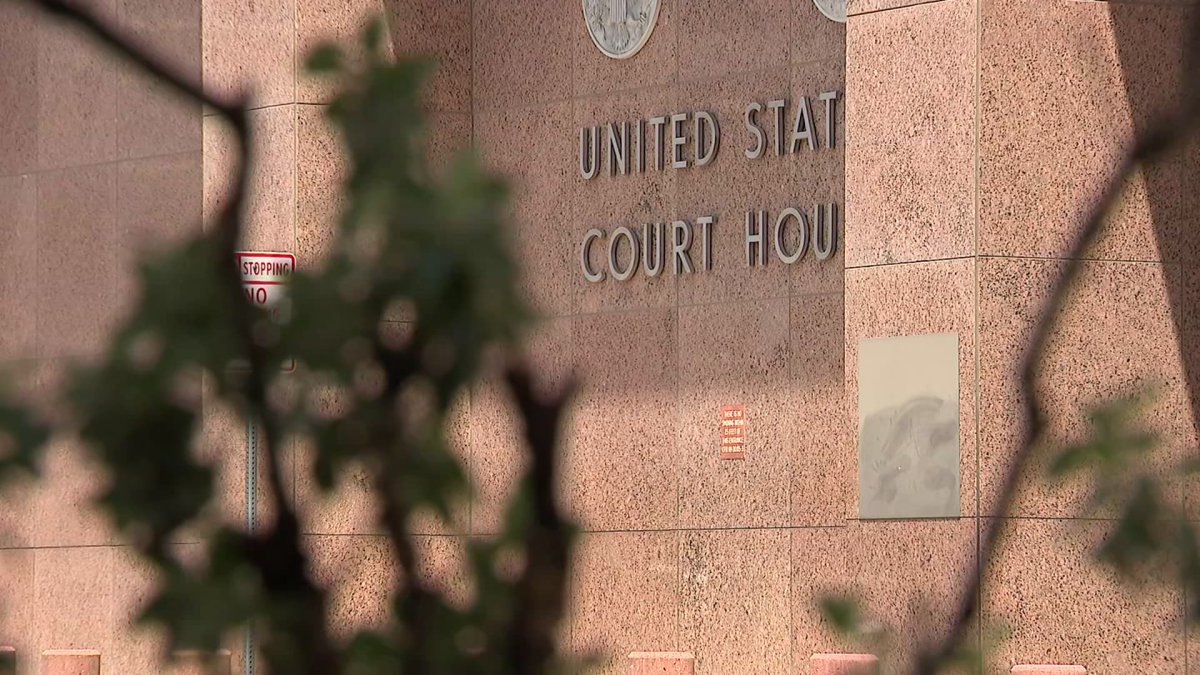Tennessee
AT&T, the broadband conundrum and a $204 million tax exemption – Tennessee Lookout

The AT&T building also known as the batman building in Downtown Nashville, Tenn. (Photo: John Partipilo)
As Tennessee lawmakers rushed toward the end of the 2022 legislative session, debates over a new school funding formula, the budget, and critical race theory took center stage.
Amid the chaos comparable to the final days of a school year, lawmakers unanimously passed the Tennessee Broadband Investment Maximization Act, containing only one item: a nine-figure tax exemption, primarily benefitting one company.
Since 2009, AT&T has spent $9.6 million to influence Tennessee’s state politics, according to a database created by the Lookout. The company, whose significant presence in Tennessee comes from its buyout of BellSouth, is the state’s largest political spender over that period, averaging $500,000 on lobbying and $100,000 on political donations annually.
The act — which went largely unscrutinized by the public, media and lawmakers— granted a three-year sales tax exemption to broadband companies for the purchase of any equipment to improve or expand high-speed internet networks. The annual tax savings, estimated by the Tennessee General Assembly Fiscal Review Committee at $68 million per year, are enough to hire 142 new highway patrol officers, 25 new forensic scientists and build a new park every year.
On its surface, the exemption looked benign. Two years ago, the federal government designated hundreds of millions of dollars to Tennessee to expand broadband in rural communities, and the broadband investment act was designed to prevent those funds from being taxed by the state.
But, Stephen Spaulding, a policy and government affairs executive with the watchdog group Common Cause, said the broadband investment act reminded him of a bait-and-switch tactic to passing legislation.
“You can take a bill, call it Americans for Apple Recognization Day and then just strike out all the language, insert a tax cut, and it will likely pass,” Spaulding said. “There are lots of maneuvers to make something happen without the public having sufficient ways to evaluate who will ultimately benefit or lose out.”
The broad nature of the tax bill and the process of its passage exposed the power of AT&T in the Tennessee legislature, where it has used its money to maintain a vast influence over telecommunications and broadband policy in the state.
An initial draft of the broadband investment act included a provision to remove barriers for nonprofit electric cooperatives to build more high-speed networks in rural areas. But AT&T successfully lobbied for the bill to change into only a tax cut. As the largest private broadband company in Tennessee AT&T is likely to receive the lion’s share of the tax benefit versus the nonprofit cooperatives that are, in most cases, not paying sales tax.
Blair Levin, a former official with the FCC and senior fellow at Brookings Metro, said AT&T likely fears the competition from cooperatives because they have proved a nonprofit model can be more effective in accomplishing the goal of bringing high-speed internet access to rural communities.
“The biggest untold story of the last decade is how electric cooperatives have been the biggest primary driver of great broadband for rural areas,” Levin said. “They’ve had the best business model.”
A system satisfying no one
The fight over which companies could build broadband lines and where they could put them has a long and complex history in Tennessee.
It dates back to AT&T’s monopoly over phone lines, passing through the 2015 fight over whether Chattanooga Electric Power Board could bring high-speed internet to Bradley County, and ends up in today’s dispute with electric cooperatives.
The latest battle comes down to whether lawmakers consider broadband a public utility or private good, especially after COVID-19 proved the necessity of high-speed internet in schooling, telehealth and business.
Tennessee’s current broadband policy involves a two-tiered system where private companies operate in profitable urban areas, while publicly-backed companies — like electric cooperatives and municipality broadband providers — function in mostly less prosperous rural areas, with strict rules separating them.
Kathryn de Wit, a broadband expert with Pew Charitable Trusts, said this system creates a situation where competition is low, making prices higher and leading to a lower quality of service.
“The industry is largely a monopoly or duopoly throughout the country, one that’s has been reinforced by some low-grade policy,” de Wit said. “A lack of transparency and lack of information limits our ability to understand whether or not we can create competition in the marketplace.”
COVID boosted broadband as a bipartisan issue
This argument shifted heavily towards the utility side during the COVID-19 pandemic, which in part prompted the broadband investment act.
“Broadband is now an essential service,” said Sen. Jon Lundberg, R-Bristol, who co-sponsored the act.
Lundberg and his House sponsor, Rep. Kevin Vaughan, R-Collierville, brought the bill forward following the passage of the federal bipartisan infrastructure bill which gave Tennessee over $800 million to bring broadband to rural communities.

The two lawmakers sold the bill as a way to avoid having companies pay taxes on federal grants.
“I think this bill was a good idea,” Vaughan said, adding AT&T had no undue influence on the legislation.
But electric cooperatives are more likely than private companies to receive federal broadband funds because they are the organizations expanding into rural areas, and most are nonprofits which don’t pay sales tax.
Representatives from AT&T echoed Lundberg and Vaughan’s sentiments, arguing in a statement the bill was a “wise public policy” decision.
“The moratorium on sales tax on broadband equipment, can help make broadband investments even more effective in connecting people and communities, whether those investments come through private capital or government subsidy programs,” said Scott Huscher, a communications director for AT&T.
Can’t undo the ban
In 2015, the Federal Communications Commission tried to step in and change the playing field between privately-owned and publicly-backed broadband by preempting Tennessee’s ban on allowing publicly-backed broadband from expanding outside their coverage areas.
Republicans in the state legislature decried this as federal overreach, expressing fears that forcing private and public companies to compete was unfair.
The FCC stated its goal was to remove barriers to expanding broadband and create competition to lower internet prices. But, the Tennessee Attorney General sued the FCC, winning in federal court to keep the ban in place.
Since then, the publicly-backed broadband companies have tried to remove the ban to no avail.
Since at least 2009, these groups have funded organizations like the Tennessee Fiber-Optic Communities, the Tennessee Broadband Association, and Tennessee Electric Cooperative Association and spent nearly $9.4 million lobbying and donating to state lawmakers.
Even still, AT&T itself outspent all three groups.
The latest attempt to break the cooperative ban came in 2022 as part of the initial language proposed in the House version of the broadband investment act.
But quickly into the process, AT&T’s lobbyists advocated for lawmakers to cut the expansion provision.
Now, Tennessee lawmakers could renew the tax break as soon as the 2024 legislative session.
Levin, the former FCC official, said this is where lawmakers would ideally step in and analyze the effectiveness of the tax exemption, who it benefited and is it worth it.
“Are lawmakers deciding on a very complicated analysis of if we give a tax break of $68 million, that we lose that money to spend on schools, but we get faster broadband?” Levin said.
That’s what the debate should be, but I’m well aware that in this particular political environment, that does not seem to be the way it’s going.”
Our stories may be republished online or in print under Creative Commons license CC BY-NC-ND 4.0. We ask that you edit only for style or to shorten, provide proper attribution and link to our web site.

Tennessee
Tennessee's Free Fishing Day is Saturday, June 7 – WBBJ TV

JACKSON, Tenn. — Get ready to reel one in: Tennessee’s annual Free Fishing Day is Saturday, June 7.
According to the Tennessee Wildlife Resources Agency, on June 7, all state residents and visitors of any age may fish without a license in Tennessee’s public waters.
TWRA’s website states that additionally, youth ages 15 or younger may fish for free the entire week, beginning on June 7 and continuing through the following Friday, June 13.
TWRA says this free fishing opportunity has been ongoing in the state since 1991.
FROM TWRA:
Bobby Wilson Free Fishing Day and Free Fishing Week applies to Tennessee’s public waters, TWRA owned and operated lakes, and state park facilities. Some privately owned pay lakes continue to charge during this special day and week. Anglers will need to consult with those operators if there are any questions about a facility.
The day is named in honor of Bobby Wilson, who retired in 2022 after more than 40 years of service to the TWRA.
For more local news, click here.
Tennessee
Families prepare for possible separation after ICE raids in Tennessee

FRANKLIN, Tenn. (WTVF) — Undocumented immigrants in Middle Tennessee are rushing to prepare legal documents for their children as fear spreads following recent ICE operations that arrested nearly 200 people in Nashville and surrounding areas.
Many parents are notarizing power of attorney documents to ensure their children will be cared for if they are detained or deported.
“This is a letter of power of an attorney for care of a minor child,” reads one document being prepared by families. “Is sufficient to authorize enrollment of a minor in school and to authorize medical treatment.”
A single mother, who asked to be identified only as Andrea to protect her identity, described the anxiety of potentially being separated from her children.
“It was the fear that I would be gone and there would be no one to care for my kids,” she said.
Andrea recalled having to sit down with her 13-year-old son to explain that one day she might not come home.
“He hugged me, and said, ‘Mom, I am going to cry a lot.’ I broke down as a mom because you don’t know what to do. I can’t stay home because it’s just me,” she said.
Andrea and her two sons arrived in the US with a visa eight years ago. She said safety concerns prevented her from returning to her home country, and she decided to stay to provide better opportunities for her children as a single mother. Overstaying a visa is not considered a criminal offense, but is a civil violation of U.S. immigration law.
“Going back to my country isn’t an option, especially because of my children,” she said.
Andrea sought help from Pastor Luis Sura to complete the power of attorney paperwork. Through his nonprofit Better Options TN, Sura has assisted more than 20 families since the raids.
“They’re afraid, they’re crying, they don’t know what to do,” Sura said.
As an immigrant from Mexico himself, Sura understands their situation but notes his own path to legal status came through the most recent immigration reform signed during the Reagan administration in 1986.
“That’s why I’m here, because of the amnesty,” he said.
Sura believes current immigration policies offer few options for families like Andrea’s.
“These people will be here for 20 years. They cannot do it the right way, because there is no other way,” Sura said.
The uncertainty has changed how Andrea and her children say goodbye each day.
“So, every time we leave we hug each other and try to make it very special because there really might not be another time,” she said.
Click here to learn more about Better Options TN and power of attorney forms.
The Hispanic Foundation is also hosting a power of attorney clinic June 1, 2025. For more information: send email to vgentry@immigrationgrp.com
Andrea’s quotes have been translated from Spanish to English by bilingual reporter Patsy Montesinos.
Do you have more information about this story? You can email me at Patsy.Montesinos@Newschannel5.com
On 150-year anniversary, YMCA of Middle Tennessee looks at its past and future
Happy Birthday to the YMCA of Middle TN. They just celebrated their 150th anniversary! A lot has changed with the Y over the years. I have personally seen some of that firsthand when I was a long-time board member at the Northwest Family Y and part of their Black Achievers Program. Forrest Sanders has a look back.
– Lelan Statom
Tennessee
Nets to host Tennessee’s Chaz Lanier for workout before NBA draft

The Nets will host Tennessee guard Chaz Lanier for a predraft workout on Friday, sources told The Post.
On the short list for the best shooter in this year’s class, Lanier could be a viable target for Brooklyn with the 36th pick. They also have the eighth, 19th, 26th and 27th picks in next month’s draft.
The Jerry West Award-winner as the best shooting guard, Lanier averaged 18.0 points last season on 43.1 percent shooting and a solid 39.5 percent from behind the arc.
Tapped to go 40th to Washington in ESPN’s latest mock draft, Lanier measured 6-foot-3 ¾ and 205.8.8 pounds at the NBA draft combine and helped his cause in Chicago.
-

 Education1 week ago
Education1 week agoVideo: Columbia University President Is Booed at Commencement Ceremony
-

 Technology1 week ago
Technology1 week agoAMD’s new RX 9060 XT looks set to challenge Nvidia’s RTX 5060
-

 Technology1 week ago
Technology1 week agoAre Character AI’s chatbots protected speech? One court isn’t sure
-

 News1 week ago
News1 week agoRead the Full ‘Make America Healthy Again’ Report
-

 Culture1 week ago
Culture1 week agoHow Manga Megastar Junji Ito Makes Terrifying Series Like ‘Uzumaki’
-

 News1 week ago
News1 week ago'Golden Dome' Missile Shield To Be 1st US Weapon In Space. All About It
-

 News1 week ago
News1 week agoVideo: Trump Repeats False Claims to South African President
-

 World1 week ago
World1 week agoBelgium requests lifting of MEP immunity to investigate Huawei scandal















